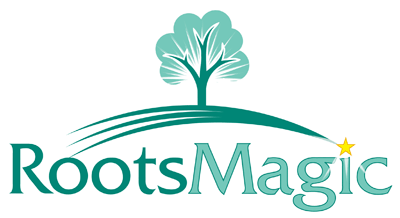Blog


What Has Replaced Random Acts of Genealogical Kindness?
 What Has Replaced Random Acts of Genealogical Kindness? It’s a question on many family historians minds, include Genealogy Gems Podcast listener Richard who wrote in with this question:
What Has Replaced Random Acts of Genealogical Kindness? It’s a question on many family historians minds, include Genealogy Gems Podcast listener Richard who wrote in with this question:
“Many years ago Bridgett Schneider hosted the Random Acts of Genealogical Kindness website (RAOGK). This was one of the best sites to get assistance from people willing to give back at a free or very nominal cost (reimbursement). I know someone has attempted to create the same type of page using Wikia (RAOGK wiki) and I have just started working with it, but there are not many volunteers for this site yet.
I was a volunteer for the original RAOGK and will attempt to do the same with the wiki page, but I was wondering if you could point me in the right direction for any other types of pages like this. I depend on others so much because my parents’ families are from all over the U.S. My father was career Navy, joining in Minnesota going to Colorado, where my parents met, then moving to Washington DC area, Florida and back to DC. My mom’s family are all from the Minnesota and Oregon areas, so traveling to find information is not always easy. Any pointers would be greatly appreciated.”
You’re right, no other website has really taken hold to replace RAOGK. And that’s because Facebook has filled the bill. Genealogists are joining in droves, and many create Facebook accounts strictly for their genealogy efforts. You certainly don’t have to have personal information posted in order to take advantage of the “genealogical crowd sourcing” ability of Facebook.
By “friending” other genealogists you start to build a group of ‘genealogy friends’ you can turn to with questions. But when it comes to specific areas, I go to the Facebook search box and search for Facebook groups on the topic I’m interested in.
For example, I am researching the Munns, Bax and Dixon families of Margate, Kent, England. A search or “Margate History” brought up a fantastic group devoted to the history of Margate. They have amassed an unbelievable amount of shared info, photos, postcards and documents. Not everyone is a genealogist, but everyone is interested in the history of Margate. It’s the first place I would go to post a question or request for help, and inevitably someone will have the answer or be in a location where they can help me.
 Although the Margate group is “history” focused, you can also search adding the word Genealogy to your location search for a group.And if you don’t see a group that meets your needs, create one! From your Facebook account:
Although the Margate group is “history” focused, you can also search adding the word Genealogy to your location search for a group.And if you don’t see a group that meets your needs, create one! From your Facebook account:
1. on the left side of the page under GROUPS click “Find New Groups”
2. Here you can join groups (Facebook will likely recommend some based on your profile interests)
3. In the upper right corner click the green + CREATE GROUP button
4. Give your group a name and select whether it is public or private
5. Start posting content to your group page
6. Start promoting the page on your profile page while also friending other genealogists and soon you will likely have a vibrant group that can assist each other based on a shared interest.
Bottom line: Facebook is the new RAOGK. And the upside is that Facebook expands the resources to folks who may be in a position to help through a shared interest while not necessarily being a genealogist.
I hope that helps. Let me know how it goes, and thanks for being a part of the Genealogy Gems community.

Find A Grave Community Day: October 18
If you’re like me, you’re turning more and more to the indexed tombstone images on sites like BillionGraves and Find A Grave. These have helped me to find death dates and burial places for my ancestors and their spouses, children, siblings and parents. Sometimes I even discover new relatives. Simply finding someone with your ancestral surname buried near your relative is a clue to look into that person’s life. The principle of researching your ancestor’s neighbors and friends applies to their final resting place!
Now you can join others who are adding more burials to Find A Grave, which already has 100 million records. Saturday, October 18 is Find A Grave Community Day, described as “a day to pull together people from all walks of life to a common purpose of helping gravesites..be remembered.” Click here to learn more about participating in this global cemetery meetup. And click on these sites to explore their fantastic resources: Find A Grave and BillionGraves.

Transfer Data from The Master Genealogist to RootsMagic
 Recently, the creators of The Master Genealogist (TMG) family tree software announced they were retiring the software. There’s been a little upheaval lately with TMG users scurrying to transfer their data to another software.
Recently, the creators of The Master Genealogist (TMG) family tree software announced they were retiring the software. There’s been a little upheaval lately with TMG users scurrying to transfer their data to another software.
RootsMagic has released an update especially for the transfer of TMG to RootsMagic. Previously, users could transfer their GEDCOM files, but some details were lost in the process (like witnesses, roles, source templates and more). So here’s the announcement from RootsMagic:
“We have just released a new RootsMagic update (v6.3.3) which adds a direct TMG import. This direct import not only imports basic genealogical information from TMG like names, events, notes, and media, but also imports witnesses (with roles), source templates, and sentence templates. In fact, RootsMagic has the most complete TMG import available anywhere. Of course, due to different data models and template languages, no import can be 100% perfect but we have prepared a guide to make the transition as smooth as possible.”
For a limited time, RootsMagic is offering TMG users a competitive upgrade price of $19.95 for RootsMagic. Click here to find out more information about the TMG import and to get the TMG upgrade special price.





